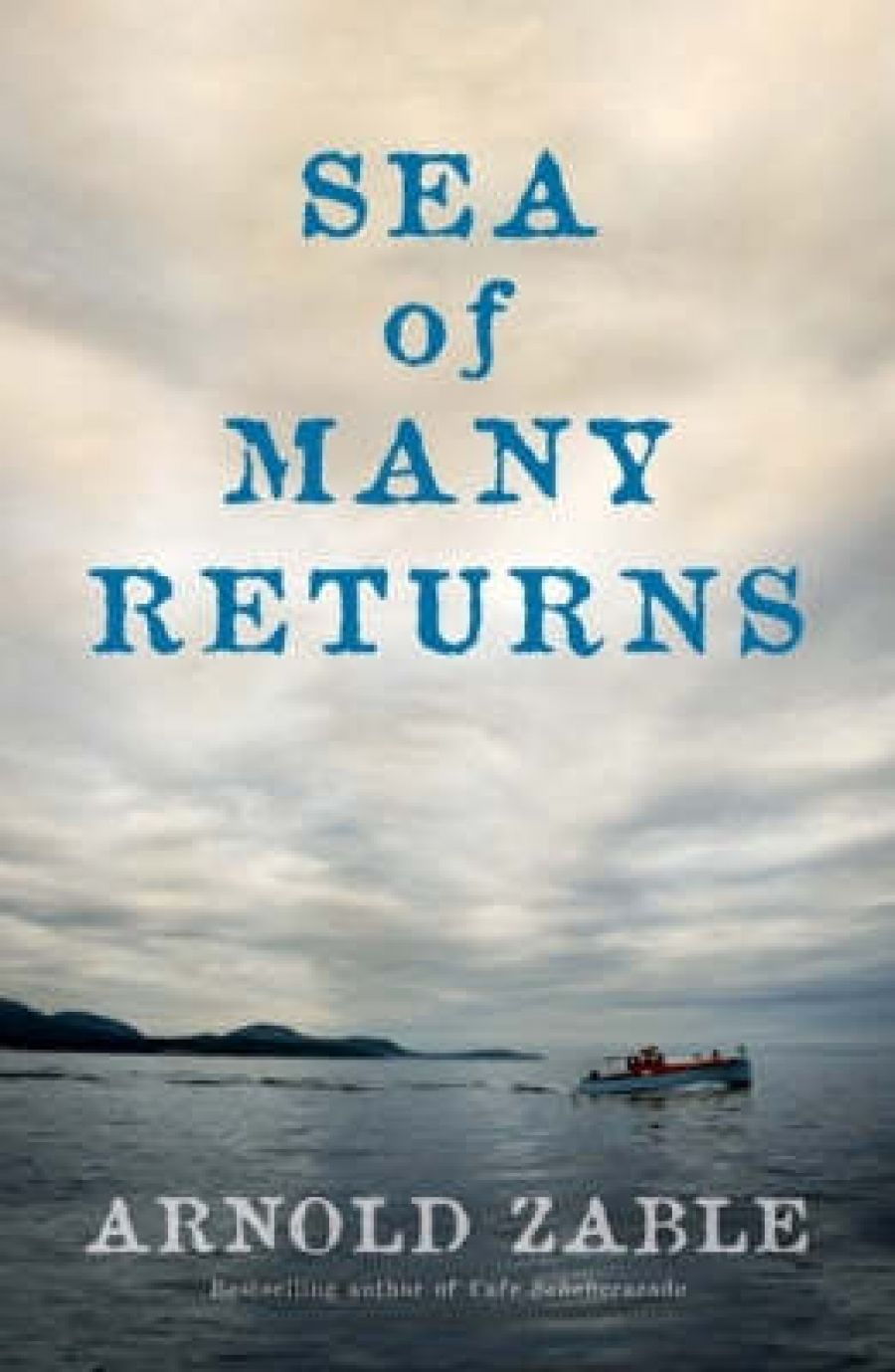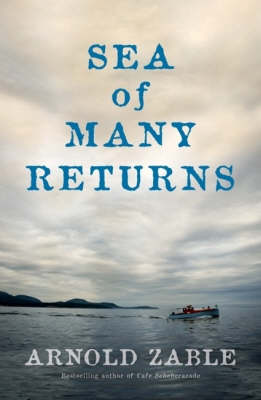
- Free Article: No
- Contents Category: Fiction
- Review Article: Yes
- Article Title: Pain of home-longing
- Online Only: No
- Custom Highlight Text:
Australia’s obsession with Greece goes back a long way; it has not always been as warm as we might like to think. The George Johnston–Charmian Clift–Sidney Nolan kind of love affair with the islands could sometimes turn a bit sour: think of Patrick White or demeaning references to the ubiquitous Olympic Café in films and stories. The temptation of writing in these well-established furrows is to exploit the subject matter rather than explore it.
- Book 1 Title: Sea of Many Returns
- Book 1 Biblio: Text, $32.95 pb, 305 pp
- Book 1 Cover Small (400 x 600):

- Book 1 Cover (800 x 1200):

Homeric echoes are everywhere, but not in the somewhat applied sense of Nikos Kazantzakis. Villagers are exasperated by those Western scholars who scrabble about the island looking for exact identifications. Screw Penelope; but the beat and thump of the loom carries through the old cottages. The point is more the sense and colour of inevitable fate, as the men one by one leave the island to find their fortune by turning their backs on their heritage. Returning, they find that time has changed their connection to their wives and sons and daughters, and to a place which is no longer theirs. And in returning, they also lose their connection with their fellow far-travellers. What can one do? You accept your fate.
Sea of Many Returns is mainly a story of two brothers, and the father-in-law and daughter of one of them; more precisely, their interwoven stories. That looks easy. In fact, it is difficult to differentiate between the characters as they all have the same voice – family likeness taken to extremes. A family tree is provided at the outset, of the kind that used to come with translations of the Russian classics. In this case it looks like an editorial afterthought, and a good one, as it turns out. I kept turning to it until well through the book. These are not characters sufficiently vivid to have their own imaginative pressure, or not until late in the piece. The Walter Burley Griffins make a brief cameo appearance; they come across as unattractive and uninteresting, though whether that is by intention is not easy to decide.
The two brothers are Steinbeckian opposites, who spend the length of the book missing and misunderstanding each other from opposite ends of the earth. They had built a boat together, ‘Brotherly Love’, in the years their father was absent in Afstralia. We see very little of them as brothers, and very little of the boat. This is a novel of unhappy absences.
Having said that much, the novel is not really about those things at all, but about storytelling. Everyone tells his or her tale, at the drop of a hat. It is a compulsion, like a community of Ancient Mariners. This is no place for bridegrooms, or anyone with a ferry to catch back to the mainland.
Between us and the many different stories competing to be told is the voice of another narrator, or not so much his (Zable’s? it doesn’t sound like the granddaughter’s) voice as his language. There are masses of detail, poetic cascades of it, an Homeric rhapsody. These prose catalogues are a characteristic of magic realism, and it is nicely apt that one of the novel’s high moments, where the narration is intent on bringing together all the detail into some kind of profound poetic vision, is an inaugural performance by the father-in-law, Mentor (I know, but that is what he has been called), as a magician and hypnotist. Magic realism, indeed.
At every turn there are words, and more words, before there is story. The words draw attention to themselves, sometimes by their rich echoes or by their representation of long-established social formalities. Sometimes they jar, when the register is inappropriate to the character (‘harboured’, ‘ensuing’, ‘rheumy’, ‘embedded’, ‘sclerotic’, ‘errant’, a vocabulary that seeks to impress rather than characterise). And there is the puzzling appearance of ‘wanker’, much too recent in Australian usage to be part of the dialogue of the time; though it may be a perfectly exact translation of what the Greeks have been saying among themselves for millennia. But it doesn’t appear in any translation of Homer that I know.
Beneath all this, the steady beat of repeated folk wisdom, fatalist truisms. To survive you must leave. Life is a hole in the water. All has been written. There is no end to tales. What can one say?


Comments powered by CComment